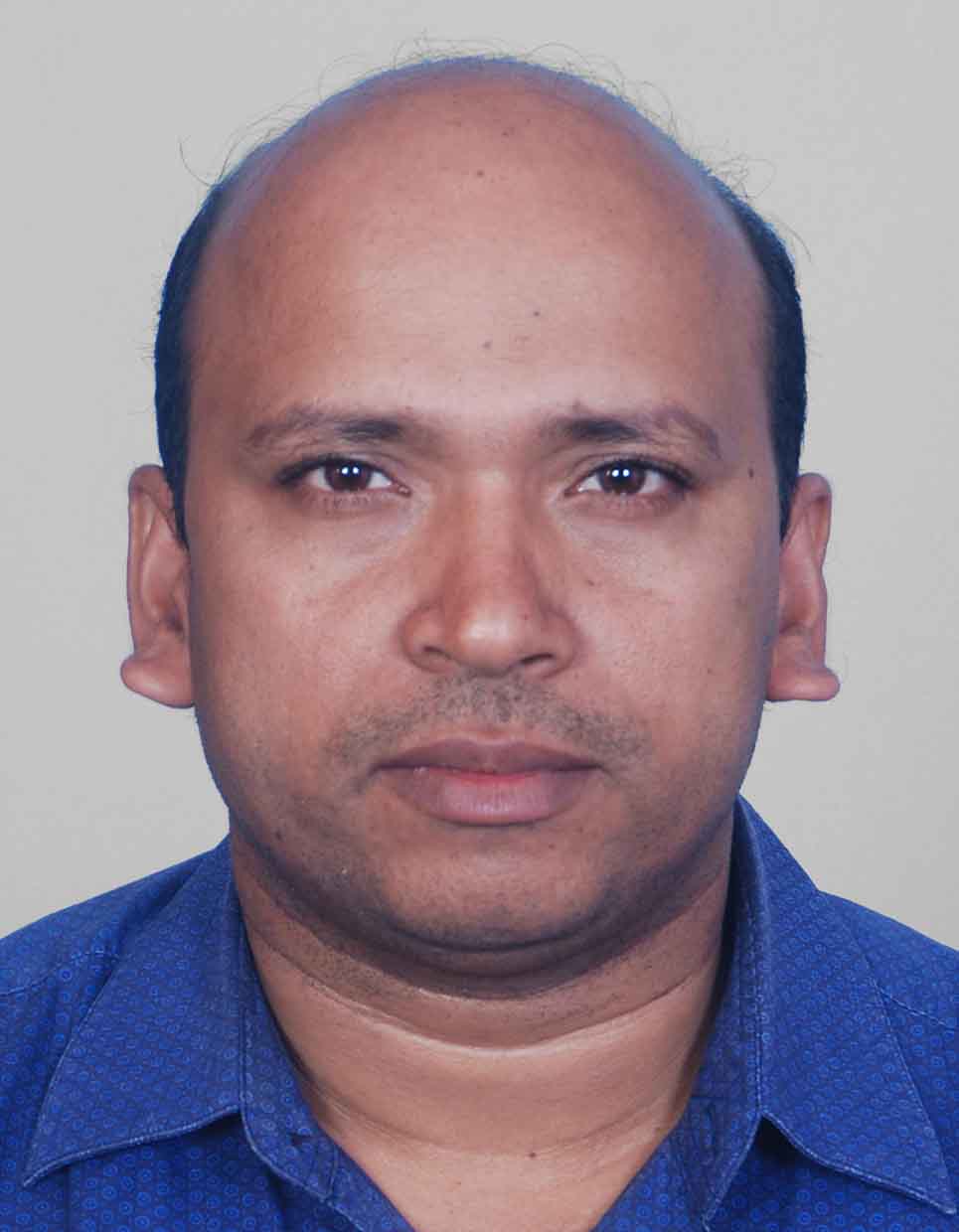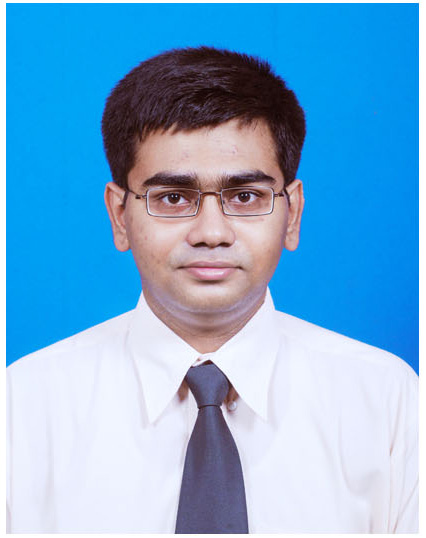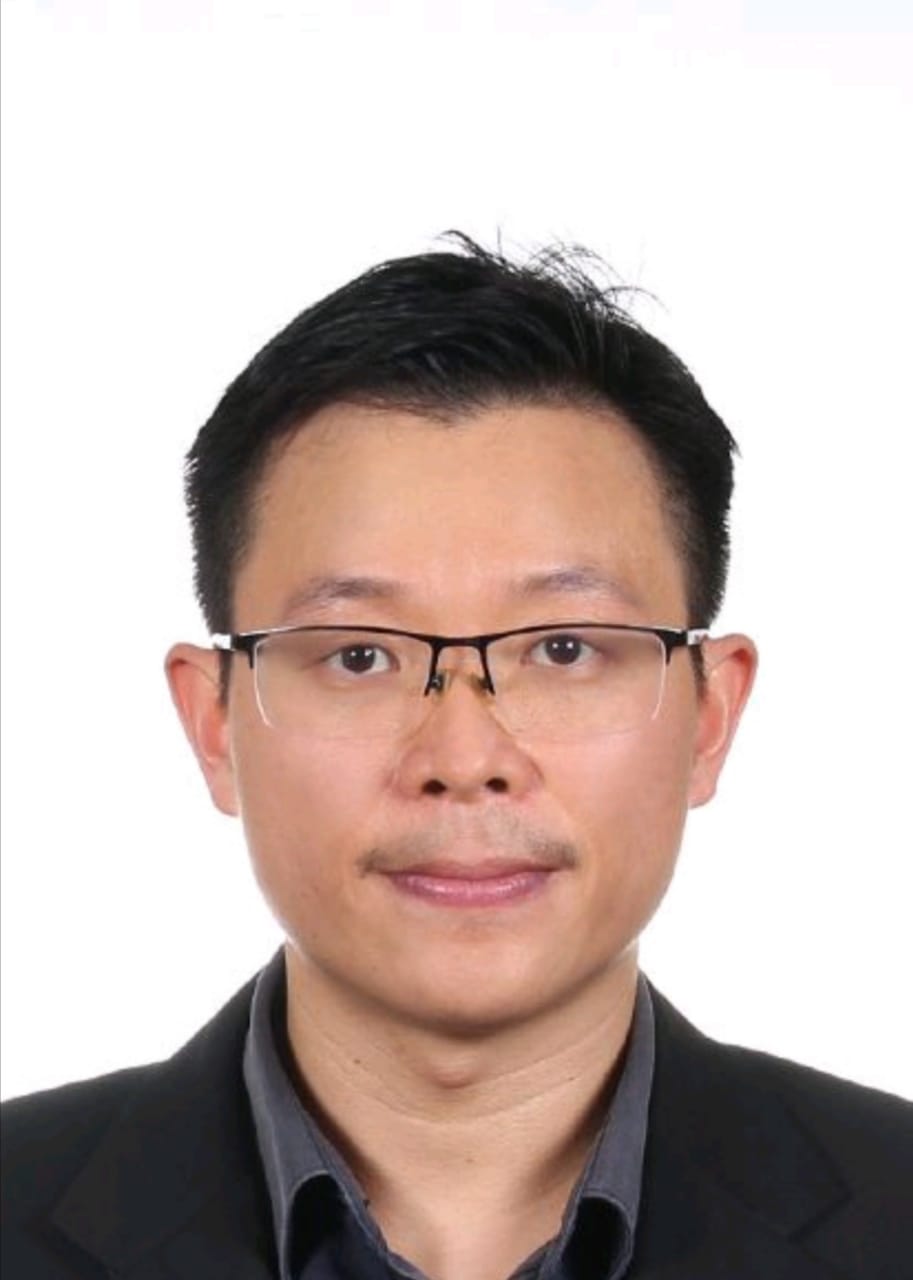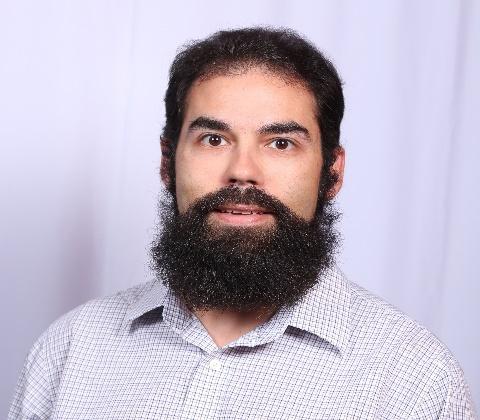
Pravat Kumar Ray Department of Electrical Engineering, National Institute of Technology Rourkela- 769008, India
Pravat Kumar Ray (SM’18) received his Bachelor degree in Electrical Engineering from Indira Gandhi Institute of Technology, Sarang, India in 2000, ME in Electrical Engineering from Indian Institute of Engineering Science and Technology, Shibpur, West Bengal, India in 2003 and PhD in Electrical Engineering from National Institute of Technology (NIT), Rourkela, India in 2011. He was also a Postdoctoral Fellow at Nanyang Technological University, Singapore during January 2016 to June 2017. Dr. Ray is presently working as an Associate Professor in the Department of Electrical Engineering at, NIT Rourkela, India. He has published more than 50 papers in reputed journals and over 60 proceedings of international conferences. He has supervised 9 PhD theses to successful completion and currently supervising 8 PhD Scholars. He has collaboration with several foreign universities through bilateral and multilateral international research grants. His research interests include system identification, signal processing and soft computing applications to power system, power quality, energy management in microgrid, solar irradiance forecasting and grid integration of EVs and renewable energy systems.

Arnab Ghosh Department of Electrical Engineering, National Institute of Technology Rourkela- 769008, India
Arnab Ghosh(SM’19) is working as an Assistant Professor and associated with Centre of Excellence (CoE) on Renewable Energy Systems at the Department of Electrical Engineering at National Institute of Technology Rourkela. He has been actively involved in research on different control and design power electronic converter for renewable power generations. He is an IEEE Senior Member. He is also Chartered Engineer. He is author of more than Thirty-Five (35) research publications in international journals and conferences of repute. His research interest includes the design of charging station for EVs, control of nanogrid/ microgrid/ smartgrid, switch-mode power converters, nonlinear dynamics of switching converters, machine drives, etc. Dr. Ghosh is also supervising UG, PG, and PhD students in the domain of design of power electronics converters and controls for Smart grid and Hybrid Microgrid.

Chee Shen Lim University of Southampton,Malaysia, Iskandar Puteri, Malaysia
Chee Shen Lim (Senior Member, IEEE) received the B.Eng. degree (Hons.) in electrical engineering from the University of Malaya, Kuala Lumpur, Malaysia, in 2009, and the joint-university Ph.D. degrees in power electronics and drives from the University of Malaya and Liverpool John Moores University, Liverpool, U.K., in 2013. He was a Research Scientist with the Experimental Power Grid Centre, A∗STAR, Singapore, from 2013 to 2015. He is with the University of Southampton Malaysia, Iskandar Puteri, Malaysia, since November 2015, and he is currently an Associate Professor of electrical and electronic engineering. His research interests include advanced model predictive control design, multiphase motor drives, grid-connected converter control, and microgrid hierarchical control. Dr. Lim serves as an Associate Editor for the IET Electric Power Applications
Motivation
Energy and power grids endure a considerable energy wastage due to inefficient consumer appliances, inefficient energy routing and unreliable communication and monitoring. Moreover, a traditional grid confronts issues of escalated energy demand, accommodation of renewable energy potential and low carbon technology, security of supply and cyber security. In this context, smart grids (SGs) are continually evolving as a key prospective for the modern era power and energy distribution networks. Internet of things (IoT) being a cutting-edge technology can play a defining role in making energy and transport infrastructure smarter, efficient, reliable and robust. It offers improvised parameter monitoring, coordinated control and optimum power/energy management with the help of various IoT devices (smart meters, controllers, actuators, sensors etc.). Therefore, it can eventually transform the centralized power, energy and transport network to a distributed and integrated system.
Background
IoT opportunities within the energy and transport industry
The driving force behind the introduction of IoT into the energy and transport sectors is the need to work towards a sustainable future by efficient energy management and its intelligent consumption. IoT provides a broad variety of monitoring and energy control capabilities, with applications pertaining to residential, industrial and commercial energy consumption, equipment. The key benefits of IoT in the energy and transport sectors are listed below:
- Optimized energy efficiency: Precise and intelligent planning, control and management of energy consumption patterns minimizes the unnecessary energy loss. This results in optimized use of resources and reduced carbon emission.
- Cost savings:
Automated and planned labour effort and predictive asset maintenance results into significant reduction in the overall expenses.
- Increased reliability of power supply and transport: Actionable insights and analytic approach of IoT helps to ensure system reliability by efficiently monitoring the condition of system performance and stability.
- Efficient data acquisition- Efficient collection, transmission and processing of huge amount of data offers real- time insight into the system performance which helps to build a data-driven strategy for energy production, management and utilization. It also helps to take preventive measures during malfunction and keeps a check on the actions according to current environmental regulations.
Objectives
- To provide a platform for operating IoT based big data analysis for centralized and remote control of appliances and devices connected in SG.
- IoT based analyze data of load, charging stations and charge/discharge pattern of EVs for supporting the SG when needed.
- To provide a IoT based platform for managing a SG independent from the central grid. • To offer IoT based demand response of demand side management of central control i.e., by shedding, shifting, or leveling; load of many consumers by analyzing the load and operation of appliances.
Description
The emerging modern-day technologies in the field of communication system, intelligent robotics and the Internet of Things are expected to take the control over the fourth industrial revolution. IoT is actually an innovative automation as well as analytical system that deals with artificial intelligence, electronic, networking, sensor, cloud messaging etc. to provide product-oriented systems and services. It offers seamless communication among various devices, people, process and data by integrating them in an intelligent manner. IoT facilitate the advantages of efficient resource utilisation, minimized human effort, time saver, enhanced data collection and improved security. As a result, its application can significantly improve the performance of different sectors such as energy management, e-mobility, smart cities, construction industry, medical services, agriculture, water management etc.
In this modern era, energy and transport have become one of the crucial resources for the existence of human race. With the advancements in power electronics technology, variety of energy sources (such
as renewable sources) and electric transport are introduced to match the rapidly growing energy demand and to meet the environmental concerns. However, proper management, control and optimal utilization of the energy is the key factor to achieve a sustainable energy transition along with the mitigation of climatic challenges. In such situation, IoT-based energy and transport systems provide numerous benefits to every part of the energy supply and transport networks, electric utilities and consumers. It facilitates the development of new smarter grids and promises unprecedented savings, improved security, and enhanced efficiency. Remote control of devices, centrally management of devices via cloud-based interface and advanced functions like device scheduling will be possible for users. This particular survey offers energy policy makers, energy economists, and supervisors with an overview of the key role of IoT in energy and transport systems optimisation.
This vertical summit for IoT based energy sector will bring together the researchers, academicians and practitioners to share their experiences and present results through panel discussions and presentation sessions.
Program schedule of sessions (TV-9)
Morning (11:00-13:00 eastern)
Session Description: Smart energy is multi-faceted energy management that uses the Internet of Things (IoT) to deliver cost-effective, efficient energy distribution. It combines the use of sustainable, renewable energy sources and IoT energy management solutions and devices. Smart energy systems extend beyond intelligent electrical grids and metering to encompass multiple energy sources and types, production and delivery infrastructures, and operational processes and use cases. IoT based Smart Meter Technology Optimize energy distribution, reduce operating expenses and improve customer service with clear visibility into power usage. Smart meters provide real-time data about energy availability and consumption. Real-time usage data helps utility providers determine how, where and when to distribute energy for maximum benefit and to reduce outages. Improved transparency in accounting and billing lets customers modify their energy usage to save money and be more environmentally conscientious.
Speaker names:
-
- Hui Hwang Goh
- Palash Das
- Ghanim Putrus
- Brian (Live presentation)
Afternoon (14:00-16:00 eastern)
Session Description:Energy management using IoT is expanding, and along with it, a commitment to leveraging IoT for energy efficiency that supports environmental sustainability. As the world’s energy needs grow, so do issues around increased consumption, aging infrastructures, the rising cost of outages and consumer expectations around energy availability. With IoT-enabled solutions for smart energy and utilities, you can connect sustainable energy assets and integrate them into your existing IT infrastructure to improve energy efficiency and delivery. IoT energy management enables many sustainability practices, such as convenient access to real-time machine and consumer usage information. These practices help you make smarter decisions about energy distribution while helping your customers conserve energy and save money.
Speaker names:
-
- Bidyadhar Subudhi
- Gayadhar Panda
Structure proposal, tentative invited speakers and panellist and links to their bio: Each of the discussions on IoT topicals will be of 30 minutes duration. The topics to be addressed but not limited to are as:
- Introduction of Internet of Things
- IoT based smart energy system monitoring and maintenance
- IoT based Smart Building, Smart City, Smart Grid
- IoT block chain
- IoT deployment for EV application / IoT deployment in rural villages
- IoT enablers for V2G and G2V applications
- IoT Testbed for remote Smart grid
- IoT based energy safety and disaster prevention
Tentative invited speakers:
| Ashutosh Dutta Senior Scientist and chief 5G strategist, Johns Hopkins University Applied Physics Lab (JHU/APL), Laurel, Maryland, USA Link to Bio |
Bidyadhar Subudhi Professor, School of Electrical Sciences, Indian Institute of Technology (IIT) Goa, India Link to Bio |
Ghanim Putrus Professor, Department of Mathematics, Physics and Electrical Engineering, Northumbria University, Newcastle upon Tyne, UK. Link to Bio |
| Hui Hwang Goh Professor, Electrical Engineering, School of Electrical Engineering, Guangxi University, Nanning, China. Link to Bio |
Palash Das Owner, Pinnacle Consulting LLC, South Carolina, USA. Link to Bio |
Gayadhar Panda Professor, Department of Electrical Engineering, National Institute of Technology (NIT) Meghalaya, Shillong, India. Link to Bio |
 Brian Zahnstecher is a Sr. Member of the IEEE, Chair of the IEEE SFBAC Power Electronics Society (PELS), sits on the Power Sources Manufacturers Association (PSMA) Board of Directors, is Co-founder & Co-chair of the PSMA Reliability Committee, Co-chair of the PSMA Energy Harvesting Committee, and is the Principal of PowerRox. He Co-chairs the IEEE Future Directions (formerly 5G) Initiative webinar series and is the founding Co-chair of the IEEE 5G Roadmap Energy Efficiency Working Group and has lectured on this topic at major industry conferences. He previously held positions in power electronics with industry leaders Emerson Network Power (now Advanced Energy), Cisco, and Hewlett-Packard. He has been a regular contributor to the industry as an invited keynote speaker, author, workshop participant, session host, roundtable moderator, and volunteer. He has nearly 20 years of industry experience and holds Master and Bachelor degrees from Worcester Polytechnic Institute.
Brian Zahnstecher is a Sr. Member of the IEEE, Chair of the IEEE SFBAC Power Electronics Society (PELS), sits on the Power Sources Manufacturers Association (PSMA) Board of Directors, is Co-founder & Co-chair of the PSMA Reliability Committee, Co-chair of the PSMA Energy Harvesting Committee, and is the Principal of PowerRox. He Co-chairs the IEEE Future Directions (formerly 5G) Initiative webinar series and is the founding Co-chair of the IEEE 5G Roadmap Energy Efficiency Working Group and has lectured on this topic at major industry conferences. He previously held positions in power electronics with industry leaders Emerson Network Power (now Advanced Energy), Cisco, and Hewlett-Packard. He has been a regular contributor to the industry as an invited keynote speaker, author, workshop participant, session host, roundtable moderator, and volunteer. He has nearly 20 years of industry experience and holds Master and Bachelor degrees from Worcester Polytechnic Institute.
